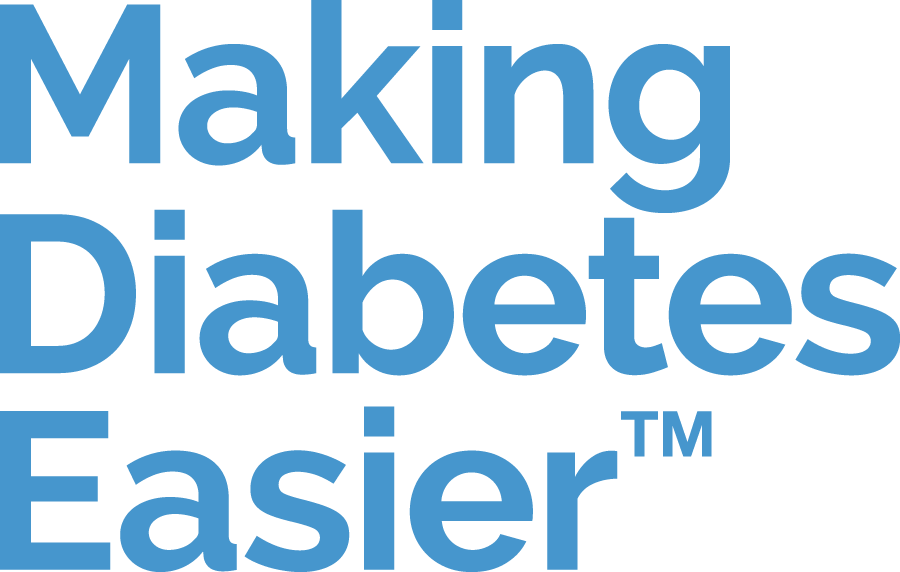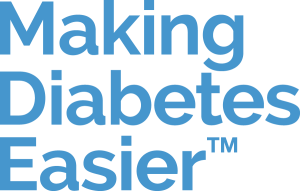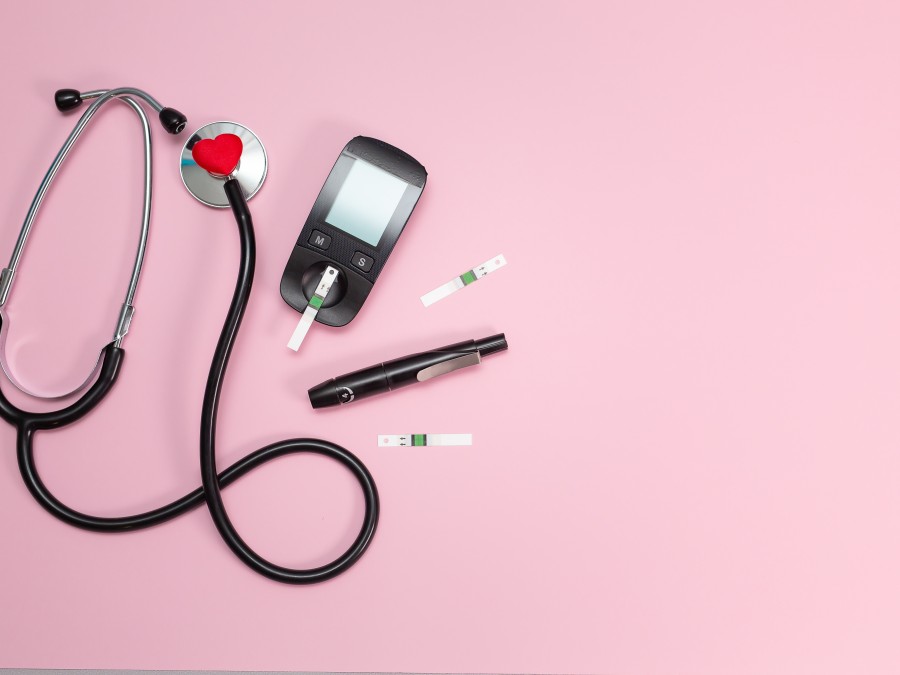Type 1 diabetes and periods: how do periods affect blood glucose levels?

Type 1 diabetes and periods: how do periods affect blood glucose levels?
Having type 1 diabetes may affect your period. In turn, the hormonal changes that happen around your period might make it harder to manage your diabetes.
In this article, we explain some of the changes that someone with a uterus living with diabetes might experience throughout the menstrual cycle. We also provide some helpful tips for helping with periods if you have diabetes.
Can periods affect blood glucose levels?
The menstrual cycle starts on the first day of your period, also called menstruation. It ends the day before the next period.
The menstrual cycle can cause blood glucose levels to fluctuate for a number of reasons. In people with diabetes, these fluctuations can make it harder to manage diabetes, with blood glucose levels being higher or lower than usual during the cycle, with an increase in the frequency of hyperglycaemia (high blood glucose levels).
To understand the impact that your menstrual cycle has on blood glucose levels, it may help to know a bit more about how periods work and the different phases of the menstrual cycle.
How do periods work?
The menstrual cycle has two main phases. The first phase, called the follicular phase, lasts for the first 12–14 days after the start of your cycle. During this phase, levels of the hormones oestrogen and progesterone are relatively low. At the end of this phase, ovulation occurs.
After ovulation, the second part of the cycle begins. This is called the luteal phase. During this time, oestrogen and progesterone levels go up, thickening the lining of the uterus in preparation for holding and nourishing a fertilised egg.
If the egg is not fertilised, however, these hormones are no longer produced by the ovary. This causes menstruation to happen, during which the lining of the uterus is shed and a cycle of bleeding begins that lasts a varying amount of time from person to person.
How do periods affect blood glucose levels?
Everyone is different and the way periods affect blood glucose levels varies for each individual.
Generally, blood glucose levels tend to be higher in the second phase of your cycle — the luteal phase and around ovulation.
Most commonly, people with diabetes will notice their blood glucose levels increase after ovulation, in the week leading up to their period. Then, during and after menstruation, they may experience a drop in blood glucose.
However, in some other people with diabetes, blood glucose can be lower than normal in the week leading up to their period. This tends to happen particularly in people who experience stronger PMS (premenstrual syndrome) symptoms.
If you notice fluctuations in your blood glucose levels and you aren’t sure if these are related to your menstrual cycle, keeping track of how your menstrual cycle affects your glucose levels could help you to find a pattern. You can do this by logging when you start your period each month and watching for a relationship between the two. A CGM (continuous glucose monitor) can be helpful for this too, as it will track your trends and record them for you continuously, which you can then compare with your cycle timings.
Why does menstruation affect blood glucose levels?
In the luteal phase, levels of the hormones oestrogen and progesterone go up. High progesterone levels may lead to insulin resistance. This means that cells in the body become more resistant to insulin action and glucose can be prevented from being absorbed by insulin-sensitive tissues.
This increase in insulin resistance allows more glucose to stay in the blood, causing a rise in blood glucose levels. Blood glucose may be higher when fasting too, after breakfast, after lunch, and before dinner.
However, this is not the same for all people. Some people with type 1 diabetes have increased insulin resistance in the luteal phase, others have lower insulin resistance, and others have the same levels of insulin resistance throughout their cycle. The effect of menstrual cycle changes on glycaemic management and insulin isn’t the same for everyone, which is why diabetes management plans should be individualised and work for you and your cycle only.
Difficulties and differences with blood glucose management seem to be more common in people who experience strong symptoms of PMS (premenstrual syndrome).
Your healthcare team can advise you about your diabetes therapy during your menstrual cycle and help you put together a plan.
Can diabetes affect period symptoms?
A recent study has shown that young people (under 30 years old) with type 1 diabetes are more likely to have menstrual difficulties than people without diabetes. However, a prospective study of menstruating people with type 1 diabetes is needed to solidify these findings and assess the impact of these difficulties.
These could include:
-
long periods (periods lasting for six days or longer)
-
heavy periods
-
longer menstrual cycles (over 31 days)
-
irregular periods
These tend to occur particularly among people under the age of 30.
Young adults with type 1 diabetes may also have their first period earlier than people who do not have diabetes. Menopause may also occur earlier in people with diabetes.
How to manage blood glucose levels around your period
If you experience spikes in your blood glucose in the second phase of your cycle and are using insulin, you may notice that your insulin does not work as well as it normally does.
However, there are several things you can do to keep blood glucose in check around your period.
-
Monitor and make a note of any links between the onset of your period and changes in blood glucose over time, in addition to your usual blood glucose monitoring. This can help you work out trends and plan for managing diabetes when you are menstruating.
-
If you are using insulin and need to adjust it to fit your menstrual changes, show your healthcare team the patterns that you have observed. You could even use a personal profile on your t:slim X2 especially for your period.
- Eating at regular times can help you avoid bigger changes in blood glucose; in turn, avoiding large blood glucose swings will help prevent food cravings. Avoiding alcohol, chocolate, and caffeine may help stabilise your mood and help you avoid food cravings but we understand these things are hard to avoid so it’s good to ensure that everything is enjoyed in moderation.
-
Regular exercise can help to lower blood glucose and relieve period symptoms,try to maintain your regular exercise pattern during this time of the month or try a little bit of movement and see what works for you.
Speak to your healthcare team for further guidance on how to manage your blood glucose levels around your period.
Having diabetes may influence your period, and your period may affect your management of diabetes.
However, every person is different, and paying attention to your body can help you see what works for you. Having an individualised management plan can help you feel more in charge of your diabetes and help towards making your periods and your diabetes easier.
Sources
- Strotmeyer ES, Steenkiste AR, Foley TP Jr, Berga SL, Dorman JS. Menstrual cycle differences between people with type 1 diabetes and people without diabetes. Diabetes Care. 2003 Apr;26(4):1016-21. doi: 10.2337/diacare.26.4.1016. PMID: 12663566. https://diabetesjournals.org/care/article/26/4/1016/23652/Menstrual-Cycle-Differences-Between-people-With
- Majeed, Maysaa Jalal. Variation of glucose concentration during different phases of menstrual cycle. The Iraqi Postgraduate Medical Journal 10.1. 2011: 73-77. https://www.iasj.net/iasj/download/cf2fba0814168cc0
- Office on people’s Health, United States Department of Health and Human Services. Your menstrual cycle. Accessed May 5th, 2022. Available at: https://www.peopleshealth.gov/menstrual-cycle/your-menstrual-cycle-and-your-health
- Dey, Saheli, Doyel Dasgupta, and Subho Roy. Blood Glucose Levels at Two Different Phases of Menstrual Cycle: A Study on a Group of Bengali-speaking Hindu Ethnic Populations of West Bengal, India. The Oriental Anthropologist 19.1, 2019: 55-63. https://journals.sagepub.com/doi/full/10.1177/0972558X19835371
- Denise S. Barata, Luís F. Adan, Eduardo M. Netto, Ana Claudia Ramalho; The Effect of the Menstrual Cycle on Glucose Control in people With Type 1 Diabetes Evaluated Using a Continuous Glucose Monitoring System. Diabetes Care 1 May 2013; 36 (5): e70. https://doi.org/10.2337/dc12-2248
- ScienceDirect Topics. Menstrual Cycle - an overview. Accessed May 5th, 2022. Available at: https://www.sciencedirect.com/topics/agricultural-and-biological-sciences/menstrual-cycle
- Brown SA, Jiang B, McElwee-Malloy M, Wakeman C, Breton MD. Fluctuations of Hyperglycemia and Insulin Sensitivity Are Linked to Menstrual Cycle Phases in people With T1D. J Diabetes Sci Technol. 2015;9(6):1192-1199. Published 2015 Oct 14. doi:10.1177/1932296815608400 https://www.ncbi.nlm.nih.gov/pmc/articles/PMC4667305/
- people’s College Hospital. people's Health Matters - Reproductive and Sexual Health. Accessed May 5th, 2022. Available at: https://www.peopleshealthmatters.ca/health-centres/diabetes/reproductive-and-sexual-health/
- Centers for Disease Control and Prevention. Low Blood Sugar (Hypoglycemia). Accessed May 5th, 2022. Available at: https://www.cdc.gov/diabetes/basics/low-blood-sugar.html
- ABC News. How Do Hormonal Fluctuations During My Menstrual Cycle Affect My Blood Sugar Levels? Accessed May 5th, 2022. Available at: https://abcnews.go.com/Health/DiabetesLivingWith/story?id=3807364
- Zarei S, Mosalanejad L, Ghobadifar MA. Blood glucose levels, insulin concentrations, and insulin resistance in healthy people and people with premenstrual syndrome: a comparative study [published correction appears in Clin Exp Reprod Med. 2013 Sep;40(3):141]. Clin Exp Reprod Med. 2013;40(2):76-82. doi:10.5653/cerm.2013.40.2.76, https://www.ncbi.nlm.nih.gov/pmc/articles/PMC3714432/
- Juvenile Diabetes Research Foundation. (JDRF). Type 1 diabetes and contraception. Accessed May 5th, 2022. Available at: https://jdrf.org.uk/information-support/living-with-type-1-diabetes/health-and-wellness/contraception/





